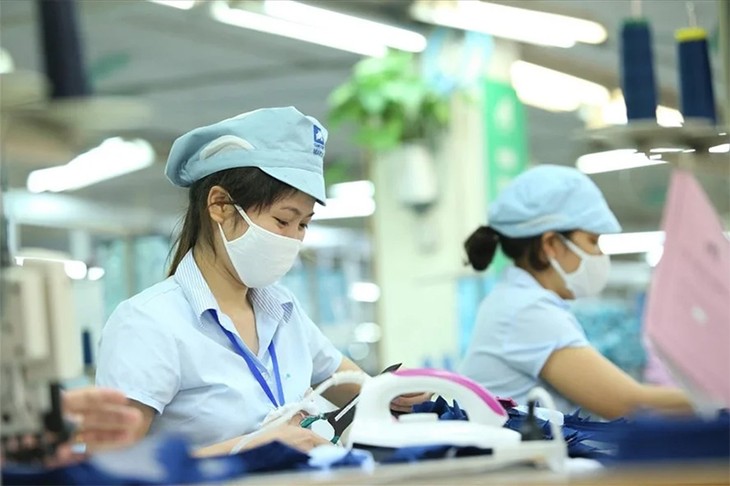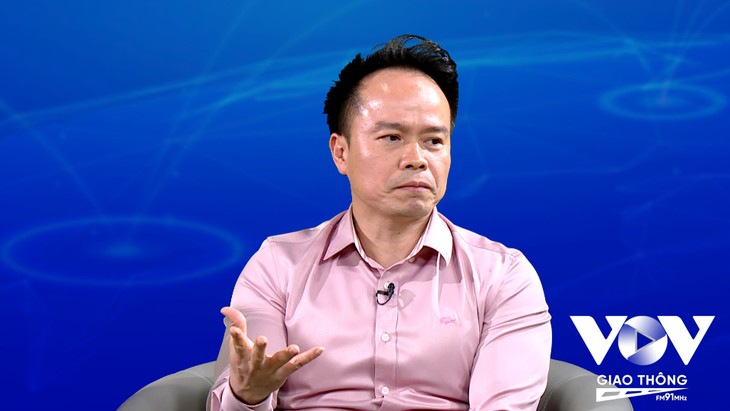(VOVWORLD) - After 3 years of implementing the Vietnam-EU Free Trade Agreement (EVFTA), trade growth between the two sides has become a reality. But now the EU will begin applying higher standards for quality, which will require Vietnamese businesses to develop green production and employ more advanced technology.
 (Photo: tapchicongthuong) (Photo: tapchicongthuong)
|
Established nearly half a century ago, the Vietnam Dairy Products Company (Vinamilk) is famous in Vietnam and abroad.
The company has always paid attention to product quality and sustainable production and trading practices. It spent 130 million USD building the Vinamilk Green Farm, an ecological farm system which meets Global GAP standards.
These farms use organic methods and follow soil regeneration cycles for better resource management. Their green area coverage is maintained at 70% or more, limiting the impact of the outside environment, said Nguyen Quoc Khanh, Vinamilk’s CEO.
Khanh took the Vinamilk Green Farm system as an example of sustainable development, adding, “To practice regenerative agriculture, we use renewable energies like solar energy, and deploy organic atomic carbon technology to reduce methane gas and livestock odors. We also organize sustainable development activities for the community.”
More and more Vietnamese businesses like Vinamilk consider green growth and sustainable development unavoidable. They are switching to green production development and using advanced technology to provide green, safe products that meet environmental standards and can participate in sustainable supply chains for the global market.
 Ngo Chung Khanh, Deputy Director of Multilateral Trade Policy Department of the Ministry of Industry and Trade. Ngo Chung Khanh, Deputy Director of Multilateral Trade Policy Department of the Ministry of Industry and Trade. |
According to Ngo Chung Khanh, Deputy Director of the Multilateral Trade Policy Department of Vietnam’s Ministry of Industry and Trade, many EU regulations don’t target the exporters but the EU importers or other EU entities.
“So they have paid more attention than we have to the way we make products, to whether production is sustainable, the impact on the environment, and how we treat workers. Vietnam must take into account both the EU regulations and the EU consumers,” said Khanh.
Nguyen Hong Loan, Technical Support Project Expert on the Carbon Border Adjustment Mechanism, said the EVFTA aims to develop sustainable trade and set standards for Vietnam to reach strong labor and climate reforms.
Green transition will help Vietnam integrate into the global value chain. To achieve its sustainable development goals, Vietnam must establish a stronger framework for this process, she suggested.
European green standards are being applied more widely and deeply, said Loan, adding, “This is the first time the EU has made a unilateral decision and opened bilateral dialogue with countries, but this dialogue focuses mainly on how to implement the standards.”
“Previously businesses could apply these standards sporadically and they were voluntary. Now when Vietnamese businesses export to Europe, they will be mandatory.”
Despite difficulties in greening production and trading activities, Vietnamese businesses have been aware of the importance of being green, responsible, and sustainable. What they need to do now is find green financial solutions for deploying or pursuing green competitive strategies. The State needs to create a legal framework for a green business environment in which companies can do business sustainably and responsibly.
Nguyen Quang Vinh, Vice President of the Vietnam Chamber of Commerce and Industry (VCCI), said, “VCCI has coordinated with ministries and sectors to organize the Vietnam Corporate Sustainability Forum over the past decade where businesses and relevant agencies can dialogue. Sustainable, responsible business models have been introduced for businesses to learn from previous successes and failures and come up with the best models to choose from.”
To continue to improve competitiveness and ensure the requirements of new-generation Free Trade Agreements, business development must be based on the core values of entrepreneurs and businesses, particularly ethics in production and business, consumer protection, and environmental protection.